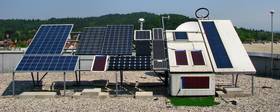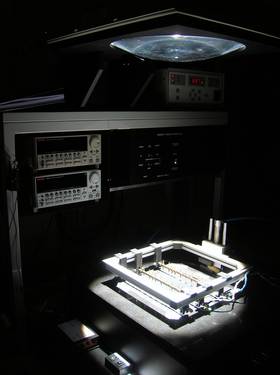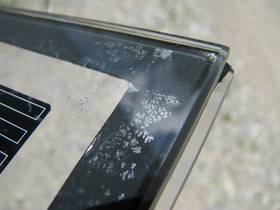In LPVO research is also directed into testing of various PV components. The testing is performed in outdoor conditions and in laboratory conditions.
PV components being tested in LPVO:
- solar cells
- PV modules
- inverters
In LPVO research is also directed into testing of various PV components. The testing is performed in outdoor conditions and in laboratory conditions.
PV components being tested in LPVO:

For the purpose of research of performance of various PV modules we have built an outdoor PV monitoring site, which is located on the roof of Faculty of Electrical Engineerig. The site has the capability to measure all major performance parameters of PV modules (I-V curve, power, current and voltage in MPP point, open circuit voltage, short circuit current, efficiency, ...) at various weather conditions. During the PV module measurements the weather parameters (solar radiation, air temperature, wind speed, air pressure, ...) are also monitored.
At this site we perform measurement of PV modules also for our clients according to standards EN 60891, EN 60904, EN 61215 and EN 61646 as follows:
We also provide long-term monitoring of PV modules under realistic conditions for the period of one month to one year. We evaluate:

Measurements of PV components in outdoor conditions are more similar to real conditions in which the components operate during their life time, but laboratory measurements on the other hand are more easy to reproduce and are not affected by outdoor weather conditions. In the laboratory it is also easier to change and/or adjust only one parameter of influence.
The main measurement equipment used by LPVO for laboratory testing of PV components:

We perform various testing of PV components, that include electrical, mechanical ad enviromental testing of PV modules, other mechanical PV components and also PV inverters.
Tests according to standards EN 61215 in EN 61646 (Design
qualification and type approval of PV modules):
According to standard EN 61730 (PV module safety qualification):
besides the test, that are already listed above
According to standard EN 50530 (Overall efficiency of grid connected PV inverters):